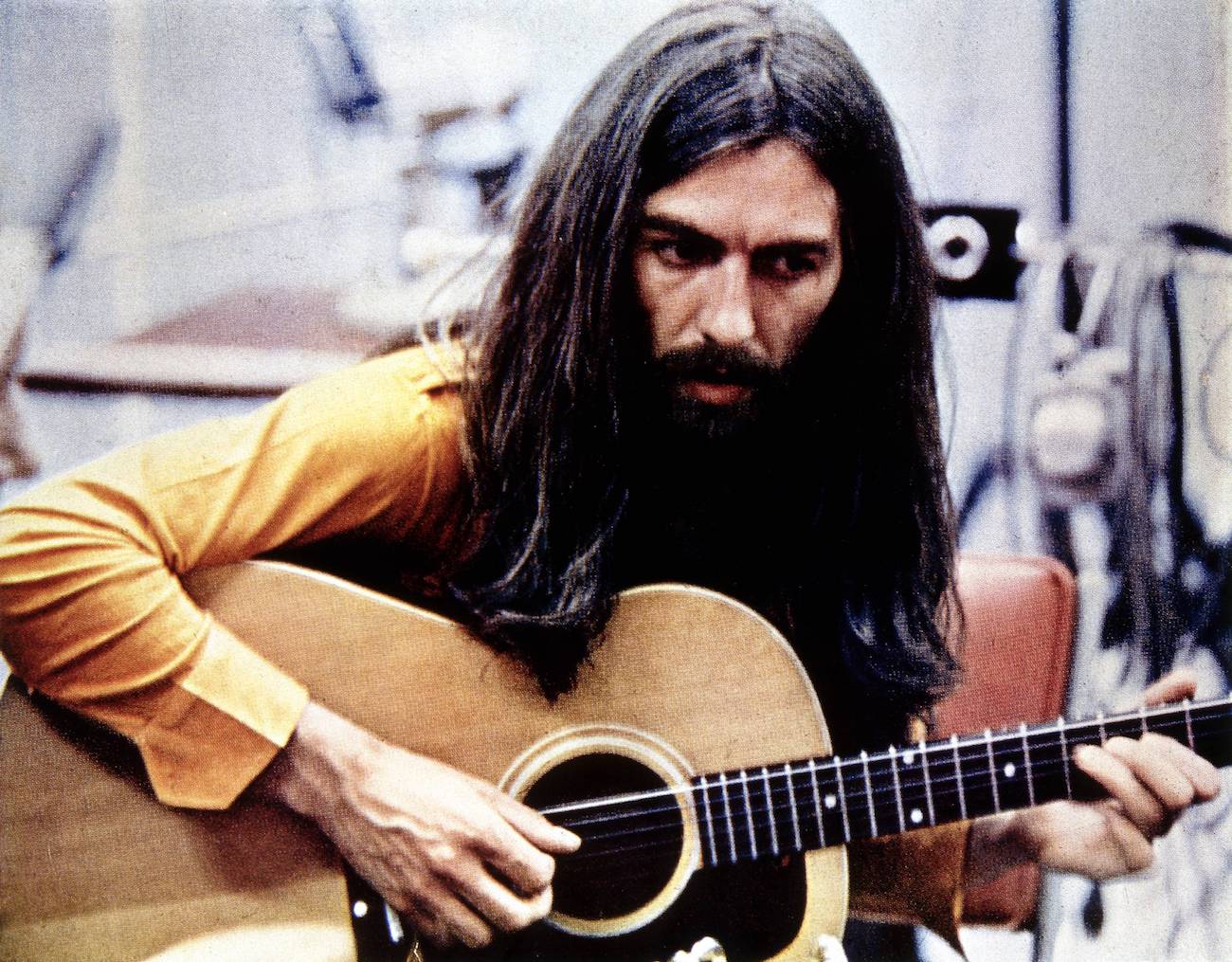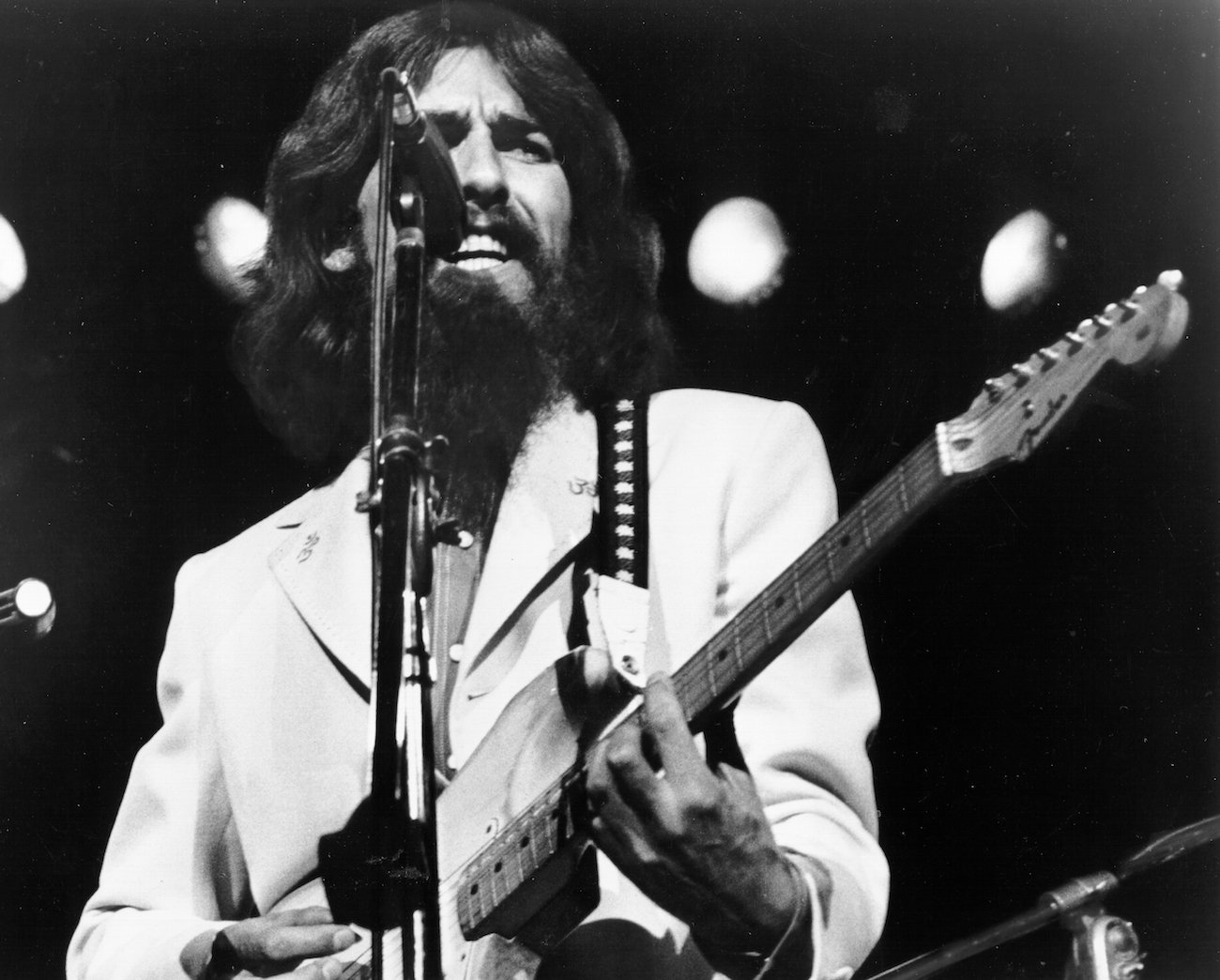
Songwriting Helped George Harrison ‘Get Rid of Some Subconscious Burden,’ Like ‘Going to Confession’
Songwriting helped George Harrison “get rid of some subconscious burden,” like “going to confession.” However, in The Beatles, George didn’t always get to release that “subconscious burden,” at least not at the speed he was writing them.

The Beatle started writing songs in 1963
Initially, songwriting didn’t come to George naturally. Since he wasn’t comfortable, John Lennon and Paul McCartney assumed the role of songwriters in The Beatles. During a 1992 interview with Guitar World, George revealed that he didn’t initially think about writing songs.
“To get it straight, if I hadn’t been with John and Paul I probably wouldn’t have thought about writing a song, at least not until much later,” George explained. “They were writing all these songs, many of which I thought were great. Some were just average, but, obviously, a high percentage were quality material. I thought to myself, ‘If they can do it, I’m going to have a go.'”
In 1963, George started experimenting to see if he could write a song just as good as John or Paul. The first song he wrote was “Don’t Bother Me.”
In his 1980 memoir, I Me Mine, George wrote, “I don’t think it’s a particularly good song, it mightn’t even be a song at all but at least it showed me that all I needed to do was keep on writing and then maybe eventually I would write something good.
“I still feel now ‘I wish I could write something good.’ It’s relativity. It did, however, provide me with an occupation.”
Songwriting helped George Harrison ‘get rid of some subconscious burden’
Eventually, George couldn’t stop writing songs.
In I Me Mine, George wrote that writing songs stemmed from something deeper in someone like him who was born during a war. If you get all the persecution of being born in war, vibrations making you wonder what it’s all about, “you can see where it all comes out. I mean in your dreams.
“So it’s the unwinding of your nervous system,” George wrote. “The corresponding experience to what winds you up comes out in your dreams. To write a song then, even one like ‘Don’t Bother Me,’ helps to get rid of some subconscious burden.
“Writing a song is like going to confession. That was also the result of the LSD really, writing songs to try and find out, to see who you are.”
However, in The Beatles, it was harder for George to get his “subconscious burdens” out of the way. Since John and Paul only let him have two songs on each Beatles album, George felt constipated. He was writing songs but had nowhere to put them, so he started stockpiling them.
George told WABC-FM New York’s Howard Smith (per Beatles Interviews) that he’d written many of the tracks on his first post-Beatles album, All Things Must Pass, in the late 1960s.
“It was the way the Beatles took off with Paul and John’s songs, and it made it very difficult for me get in,” George explained. “And also, I suppose at that time I didn’t have as much confidence when it came down to pushing my own material as I have now. So it took a while.
“But now, the output of songs is too much to be able to just sit around waiting to put two songs on an album. I’ve got to get ’em out, you know.
“It was whoever would be the heaviest would get the most songs done. So consequently, I couldn’t be bothered pushing, like, that much. You know, even on ‘Abbey Road’ for instance, we’d record about eight tracks before I got ’round to doing one of mine.”
George said there’d have to be 100 Beatles albums to get the songs he wrote in the late 1960s out. His “subconscious burden” was backed up.
Songwriting sometimes got George down
Getting those “subconscious burdens” out wasn’t always easy because George sometimes struggled with songwriting. Deadlines helped him.
In his former sister-in-law, Jenny Boyd’s 1988 book, It’s Not Only Rock ‘n’ Roll (per George Harrison on George Harrison: Interviews and Encounters), George explained, “I find that, having just finished writing and recording an album, I tend to now work in spurts. At one point I think, ‘How do you write a tune?’ I have just totally forgotten. But unlike some people who think they’ve dried up, I don’t believe we dry up.
“Some people are really good at it; they’ll set themselves an hour or two every day to go in there and write something. I don’t do that. Somebody will say something or I’ll see something, and I’ll write it down on a piece of paper and later it will come into a tune.
“But the way I am at the moment I do have to force myself to do it; that’s why deadlines are good. I never used to think I could write songs about specific things. I used to just write and the song would be whatever it became. Now somebody will ask me to write a song for a movie, and this is what’s happening. I’ve done a bit of that lately and that’s good too. You have to make yourself inspired.”
However, George didn’t really need deadlines to help him write songs.
In a 1972 interview, George told the Record Mirror, “I find the main problem is that there is very little I want to say. If you’ve got a lot to say, the lyrics come easy — if you really want to tell the world about something you can sit down and work something out. But sometimes I sit down and write a song where I say everything in the first verse — then I have to struggle to think of a second verse, middle bit, third verse and so on.
“When I write songs I work mainly on guitar because that’s the instrument I play, but sometimes I do things on the piano because that way, being unfamiliar with the instrument, you can come up with things you wouldn’t normally attempt.”
Part of the problem with not knowing what to say is how to say it. In I Me Mine, George’s wife, Olivia, wrote, “Many times he said, ‘I wish I knew more words,’ but perhaps all the words in the world, including the Sanskirt and mantras integral to his vocabulary, could not fully express his depth of feeling and realisation.”
Songwriting allowed George to say everything he needed to in a way he couldn’t articulate in words. It also allowed him to connect with God.


